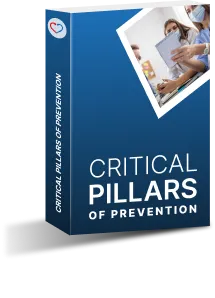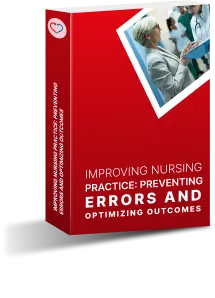
LIFEBEAT SOLUTIONS
Transforming Healthcare
Through Cutting-Edge Education
to Enhance Patient Safety and Outcomes

LIFEBEAT SOLUTIONS
Transforming Healthcare Through Cutting-Edge Education
to Enhance Patient Safety and Outcomes
Lifebeat Solutions Providing healthcare professionals with self-paced, expert-led courses that deliver real-world strategies for safer patient care.
Lifebeat Solutions Providing healthcare professionals with self-paced, expert-led courses that deliver real-world strategies for safer patient care.

Is Your Healthcare Team Prepared?
Is Your Healthcare Team Prepared?
Addressing the Challenges in
Nursing Education and Readiness
Addressing the Challenges in
Nursing Education and Readiness
Tackling the challenges within healthcare's safety net, particularly in nursing education and readiness, is essential.
These issues are not just theoretical or statistical—they affect real patient lives every day.
Missed nursing care and errors, contribute to financial burdens, diminished trust in healthcare systems, and increased legal risks.
This is where Lifebeat Solutions, designed by Dr. Julie Siemers, comes into play.
Tackling the challenges within healthcare's safety net, particularly in nursing education and readiness, is essential.
These issues are not just theoretical or statistical—they affect real patient lives every day.
Missed nursing care and errors, contribute to financial burdens, diminished trust in healthcare systems, and increased legal risks.
This is where Lifebeat Solutions, designed by Dr. Julie Siemers, comes into play.
With over 45 years of nursing expertise, Lifebeat Solutions offers proven techniques to minimize patient harm, enhance nurse competency, and reduce healthcare costs.
With over 45 years of nursing expertise, Lifebeat Solutions offers proven techniques
to minimize patient harm, enhance nurse competency, and reduce healthcare costs.
Lifebeat Solutions offers a groundbreaking solution for healthcare organizations. Leveraging over three decades of nursing expertise and educational leadership, this interactive training program addresses the critical educational shortfall, empowering nurses with the essential skills of critical thinking and clinical judgment needed for patient safety.
So, why Lifebeat Solutions? Because it's NOT just another course. It's a solution rooted in decades of research and hands-on experience.
The comprehensive courses are built on proven research and real-world application, specifically targeting the deficiencies in current nursing education.
Our approach not only ensures nurses are competent but also enables them to excel in their roles, reducing errors and enhancing patient care.
Ignoring this opportunity means continuing the cycle of patient harm, soaring healthcare costs, and growing legal liabilities.
Choosing Lifebeat Solutions means investing in the safety of your patients, the competence of your nursing staff, and the future of your healthcare organization.
With over 45 years of nursing expertise, Lifebeat Solutions offers proven techniques
to minimize patient harm, enhance nurse competency, and reduce healthcare costs.
Lifebeat Solutions offers a groundbreaking solution for healthcare organizations. Leveraging over three decades of nursing expertise and educational leadership, this interactive training program addresses the critical educational shortfall, empowering nurses with the essential skills of critical thinking and clinical judgment needed for patient safety.
So, why Lifebeat Solutions? Because it's NOT just another course. It's a solution rooted in decades of research and hands-on experience.
The comprehensive courses are built on proven research and real-world application, specifically targeting the deficiencies in current nursing education.
Our approach not only ensures nurses are competent but also enables them to excel in their roles, reducing errors and enhancing patient care.
Ignoring this opportunity means continuing the cycle of patient harm, soaring healthcare costs, and growing legal liabilities.
Choosing Lifebeat Solutions means investing in the safety of your patients, the competence of your nursing staff, and the future of your healthcare organization.
Patient Safety Certification!
Become Patient Safety Certified when you complete the first 10 courses in our program
With over 45 years of nursing expertise, Lifebeat Solutions offers proven techniques
to minimize patient harm, enhance nurse competency, and reduce healthcare costs.
Lifebeat Solutions offers a groundbreaking solution for healthcare organizations. Leveraging over three decades of nursing expertise and educational leadership, this interactive training program addresses the critical educational shortfall, empowering nurses with the essential skills of critical thinking and clinical judgment needed for patient safety.
So, why Lifebeat Solutions? Because it's NOT just another course. It's a solution rooted in decades of research and hands-on experience.
The comprehensive courses are built on proven research and real-world application, specifically targeting the deficiencies in current nursing education.
Our approach not only ensures nurses are competent but also enables them to excel in their roles, reducing errors and enhancing patient care.
Ignoring this opportunity means continuing the cycle of patient harm, soaring healthcare costs, and growing legal liabilities.
Choosing Lifebeat Solutions means investing in the safety of your patients, the competence of your nursing staff, and the future of your healthcare organization.
Patient Safety Certification!
Become Patient Safety Certified when you complete the first 10 courses in our program
The Patient Safety Standard™ - Nursing Competencies in Patient Safety
Equipping nurses to prevent harm, protect trust, and lead safe care
Level 1: Foundational Patient Safety Skills™
Level 1 lays the groundwork every nurse needs to prevent harm in real-world practice. From recognizing early warning signs to understanding the root causes of common medical errors, these courses help new and early-career nurses strengthen their clinical judgment and confidence at the bedside.
Courses
Module 1: Recognizing & Responding to Deteriorating Patients
Module 2: The Nurse’s Role in Failure to Rescue
Module 3: Clinical Judgment and Risk Recognition
Module 4: Nursing Primary Assessment Essentials
Module 5: Mastering Vital Signs
Module 6: Neurological Assessment for Practicing Nurses
Module 7: Pain Assessment: The Fifth Vital Sign
Module 8: Understanding Critical Laboratory Values
Module 9: Fluid Balance & Nutrition for Nurses
Module 10: Monitoring Perfusion in Nursing Practice
Module 11: Communication in Nursing Practice
Module 12: Patient & Family Engagement & Shared Decision-Making
Level 2: Error-Proof Nursing Practice™
Level 2 shifts the nurse’s focus from reactive problem-solving to proactive safety architecture. It helps nurses recognize hidden vulnerabilities in systems, understand why errors recur, and adopt practices that make harm far less likely in everyday care.
Courses
Module 13: Medication Error Management
Module 14: Documentation Errors & Patient Data Communication
Module 15: Nursing Surveillance, Attentiveness & Vigilance
Module 16: Mastering Clinical Reasoning & Clinical Judgment
Module 17: Preoperative Surgical Care
Module 18: Nursing Role in Harm Prevention
Module 19: Sepsis & Healthcare-Associated Infections
Module 20: Interventions for Enhanced Patient Safety
Module 21: Interpretation of Authorized Orders
Module 22: Professional Responsibility & Patient Advocacy
Module 23: Mandated Reporting in Nursing
Module 24: Health Literacy & Patient Education
Level 3: Safe Practice in High-Stakes Nursing™
Level 3 equips nurses to take action in moments where clinical, legal, and ethical stakes are at their peak. From preventing catastrophic errors to managing acute crises and defending decisions in hindsight, these modules prepare nurses for the realities of modern care.
Courses
Module 25: Failure to Follow Nursing Standards of Care
Module 26: Failure to Assess and Monitor a Patient
Module 27: Failure to Act as Patient Advocate
Module 28: Failure to Use Equipment in a Responsible Manner
Module 29: Medication Reconciliation & Discharge Planning
Module 30: Postoperative Complications: Prevention & Management
Module 31: Nurse’s Role in Blood Transfusion Safety
Module 32: Sentinel & Never Events
Module 33: Psychological Safety for Teams
Module 34: Error Reporting & Systems Improvement
Module 35: Managing Patient Aggression in Acute Care Settings
Module 36: Addressing Patient Suicide Risk in Acute Care
The Patient Safety Standard™ - Nursing Competencies in Patient Safety
Equipping nurses to prevent harm, protect trust, and lead safe care

Level 1: Foundational Patient Safety Skills™
Level 1 lays the groundwork every nurse needs to prevent harm in real-world practice. From recognizing early warning signs to understanding the root causes of common medical errors, these courses help new and early-career nurses strengthen their clinical judgment and confidence at the bedside.
Courses
Module 1: Recognizing & Responding to Deteriorating Patients
Module 2: The Nurse’s Role in Failure to Rescue
Module 3: Clinical Judgment and Risk Recognition
Module 4: Nursing Primary Assessment Essentials
Module 5: Mastering Vital Signs
Module 6: Neurological Assessment for Practicing Nurses
Module 7: Pain Assessment: The Fifth Vital Sign
Module 8: Understanding Critical Laboratory Values
Module 9: Fluid Balance & Nutrition for Nurses
Module 10: Monitoring Perfusion in Nursing Practice
Module 11: Communication in Nursing Practice
Module 12: Patient & Family Engagement & Shared Decision-Making

Level 2: Error-Proof Nursing Practice™
Level 2 shifts the nurse’s focus from reactive problem-solving to proactive safety architecture. It helps nurses recognize hidden vulnerabilities in systems, understand why errors recur, and adopt practices that make harm far less likely in everyday care.
Courses
Module 13: Medication Error Management
Module 14: Documentation Errors & Patient Data Communication
Module 15: Nursing Surveillance, Attentiveness & Vigilance
Module 16: Mastering Clinical Reasoning & Clinical Judgment
Module 17: Preoperative Surgical Care
Module 18: Nursing Role in Harm Prevention
Module 19: Sepsis & Healthcare-Associated Infections
Module 20: Interventions for Enhanced Patient Safety
Module 21: Interpretation of Authorized Orders
Module 22: Professional Responsibility & Patient Advocacy
Module 23: Mandated Reporting in Nursing
Module 24: Health Literacy & Patient Education

Level 3: Safe Practice in High-Stakes Nursing™
Level 3 equips nurses to take action in moments where clinical, legal, and ethical stakes are at their peak. From preventing catastrophic errors to managing acute crises and defending decisions in hindsight, these modules prepare nurses for the realities of modern care.
Courses
Module 25: Failure to Follow Nursing Standards of Care
Module 26: Failure to Assess and Monitor a Patient
Module 27: Failure to Act as Patient Advocate
Module 28: Failure to Use Equipment in a Responsible Manner
Module 29: Medication Reconciliation & Discharge Planning
Module 30: Postoperative Complications: Prevention & Management
Module 31: Nurse’s Role in Blood Transfusion Safety
Module 32: Sentinel & Never Events
Module 33: Psychological Safety for Teams
Module 34: Error Reporting & Systems Improvement
Module 35: Managing Patient Aggression in Acute Care Settings
Module 36: Addressing Patient Suicide Risk in Acute Care
Lifebeat Solutions Testimonials
What People Are Saying
Brilliant! Every Preceptor Program should be using this curriculum!!
BS - DNP Pittsburgh, PA
Loved it! Easy and practical. The way nursing school used to be.
JMH - MSN Pittsburgh, PA
Great! Most of what vital sign trends mean and what to look for comes from experience.
SE - Floor Nurse, Veteran's Administration Pittsburgh, PA
Schedule a call to see how we can help you!
Schedule a call to see how we can help you!
By partnering with Lifebeat Solutions, your organization can identify the best strategies to educate and empower your nursing staff to improve patient safety and outcomes.
By partnering with Lifebeat Solutions, your organization can identify the best strategies to educate and empower your nursing staff to improve patient safety and outcomes.



